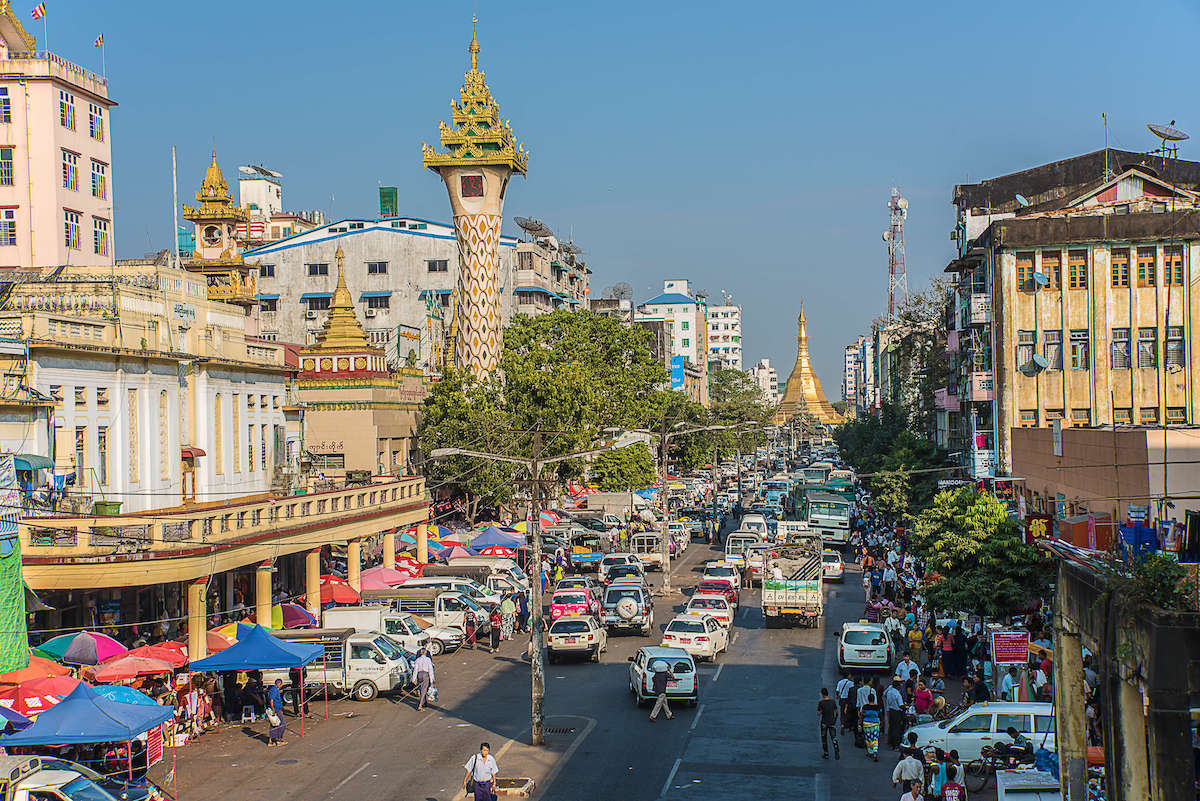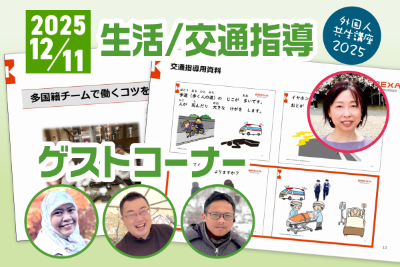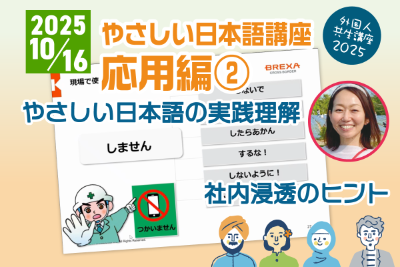- やさしい日本語
- ひらがなをつける
- Language
We provide multilingual content through machine translation. Translation accuracy is not 100%. About the multilingualization of the JAC website
- About JAC
- JAC Membership Information
- Specified Skilled Worker Acceptance
- Specified Skilled Worker Overview of the system
- 10 Mandatory Assistance for Foreigners
- Online individual consultation
- Seminar on Coexistence with Foreign Nationals
- Leading examples of host companies
- Case studies collection "Visionista"
- Foreigner's Voice
- Foreign Resident Acceptance Manual / Q&A
- Useful column "JAC Magazine"
- Acceptance support services
- Specified Skills Acceptance Support Service
- Skills improvement support
- Online Special Education
- Skill training
- Japanese Language Course
- Education and Training Support
- Subsidy system for obtaining qualifications
- Support for creating a comfortable workplace
- Temporary Return Support
- CCUS charge support
- Support system for promoting the accumulation of employment history
- Post-acceptance training
- Compensation system for Specified Skilled Worker (i)
- Daily life support
- Medical interpretation support
- Support for daily life problems
- freeJob matching
- The Specified Skills Evaluation Exam
- Home
- JAC Magazine
- Working with foreign workers
- What is the Indonesian national character? Introducing their personality and communication tips!
- Home
- JAC Magazine
- Working with foreign workers
- What is the Indonesian national character? Introducing their personality and communication tips!

What is the Indonesian national character? Introducing their personality and communication tips!
I wrote the article!

(One company) Japan Association for Construction Human Resources
Chief of Research and Development Department / Administration Department / Public Relations Department
Motoko Kano
(Kano Motoko)
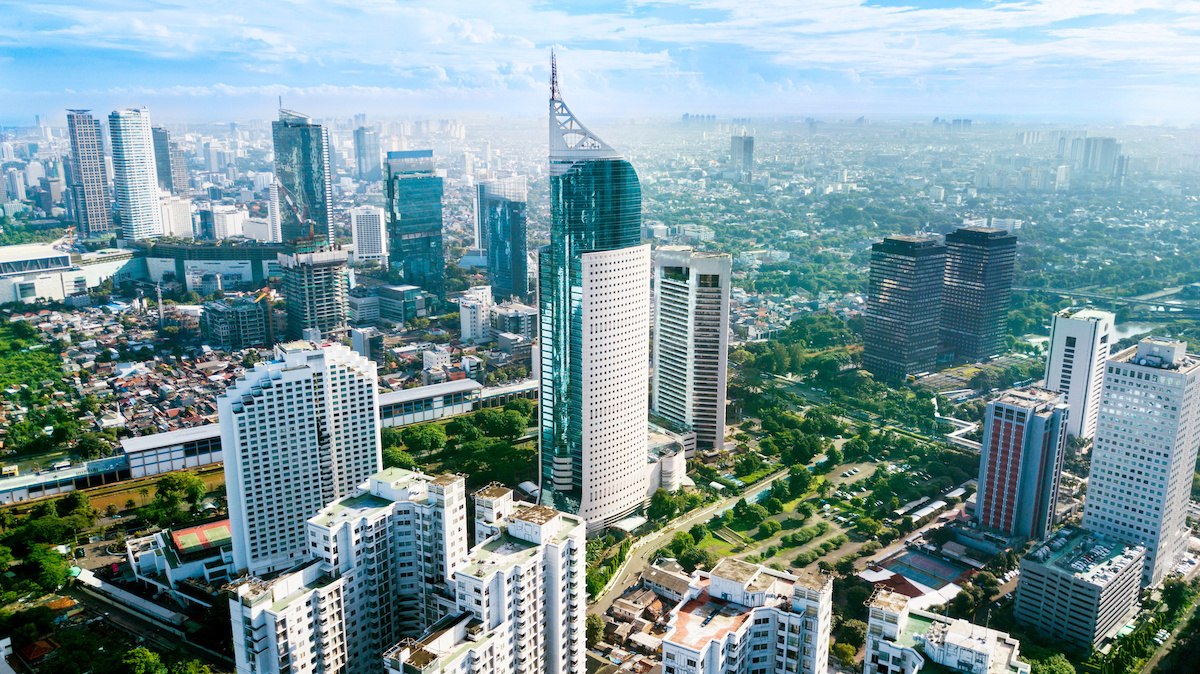
Hello, this is Kano from JAC (Japan Association for Construction Human Resources).
Indonesia is a Southeast Asian country that has built close ties with Japan since World War II, and is one of the countries experiencing remarkable economic growth within Southeast Asia.
However, I think there are not many people who know much about what kind of country Indonesia is or the national character of the Indonesian people.
As the number of foreign workers in Japan increases, the number of Indonesian workers is also on the rise.
In order to facilitate smooth communication in the workplace, it is important to first learn about the other person's country.
This time we will explain the national character of Indonesia.
We will introduce each country's characteristics and communication tips, so please use this as a reference.
What kind of country is Indonesia?
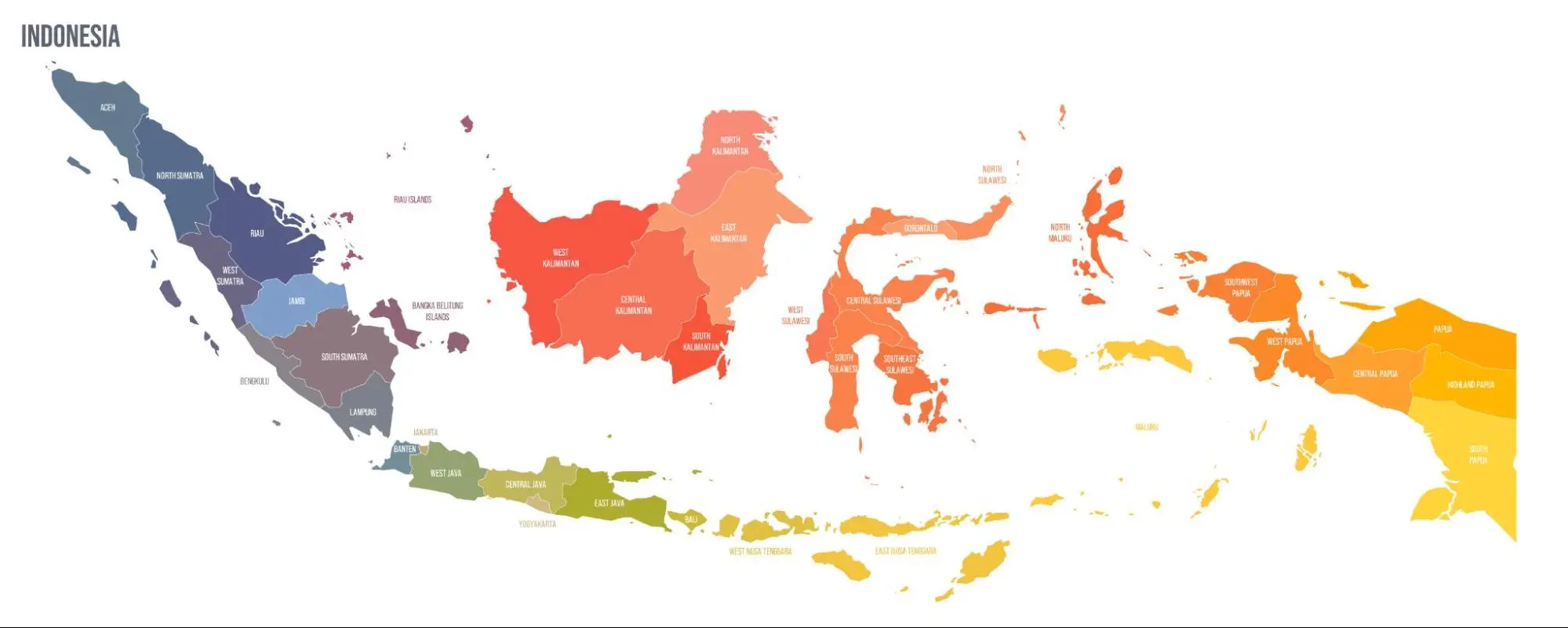
Indonesia is a country located in Southeast Asia, near the equator.
It is a large country with approximately 18,000 islands, the most in the world.
The country's land area is approximately 1.89 million km2, about five times that of Japan.
The distance from east to west is approximately 5,000 km, which is comparable to the east and west coasts of the United States.
The population is approximately 270 million (government estimate in 2010), making it the fourth largest in the world.
The average age is 29, which shows that the majority of participants are young.
The vast country is home to more than 500 ethnic groups and more than 500 languages.
The official language is Indonesian.
Approximately 90% of the population is Muslim, but there are also Christians and Hindus.
Indonesia is a country with many different cultures due to its many ethnic groups and vast land area, and we value diversity and respect each other's cultures and religions.
There are four main events in Indonesia:
- Ramadan Lebaran: The biggest religious holiday in Islam (date: varies every year, October in the Islamic calendar), Lebaran is a holiday celebrating the end of Ramadan (the fasting month).
- Feast of Sacrifice: Islamic religious event (date: varies every year, held in the 12th month of the Islamic calendar)
- Independence Day: Sports days are held all over the country on Independence Day (August 17th)
- Nyepi: New Year's Day for Balinese Hindus (March-April)
These events are very important to Indonesians and they often take time off to attend them.
In particular, at the end of Ramadan, a month-long period of fasting, there is a tradition of families gathering together for a meal, so many people wish to return home at that time.
Therefore, if you have Indonesian staff in your workplace, you may need Temporary Return Support.
What is the national character of Indonesian people? Learn about their personalities and values

Indonesia is a multi-ethnic country with approximately 500 ethnic groups.
Therefore, national character differs depending on ethnicity.
One of the common values shared by Indonesians is the importance of religion.
Every Indonesian person believes in some religion.
Most people are Muslim, but there are also many who practice other religions.
Also, even though it is generally referred to as Islam, there are differences in the level of faith and lifestyles.
For example, alcohol and pork are forbidden in Islam, but some people never eat them even in small amounts, while others only use medicines that contain pork-derived ingredients when necessary.
However, in either case, there is generally no criticism just because your own idea of precepts is different from that of others.
Indonesia is a country where many people respect each other's religions and accept each other's values.
In addition, it is said that many Indonesians have the following personality types:
- Easygoing
- Positive
- Gentle
- bright
- Polite
- Don't rush
It is said that many of their people have a positive "it will all work out" mentality and are easygoing, cheerful, and gentle.
They are also known to be devout and polite, so you will often be able to build good relationships with them in the workplace.
On the other hand, Indonesians are not in a hurry and can be rather casual about time.
It is said that because of the "it will all work out" mentality, few people feel guilty about missing a deadline.
On the work front, it's reassuring to know that we can provide support to ensure delivery dates and progress are not delayed.
For more information on the national characteristics of countries other than Indonesia, please see the following column.
What is the Thai national character? Introducing their personality and communication tips!
What is the Nepalese national character like? Introducing their personality and communication tips!
What is the national character of Myanmar? Introducing their personality and communication tips!
What is the Vietnamese national character? Introducing their personality and communication tips!
What is the Filipino national character? Introducing their personality and communication tips!
How to work smoothly with staff from Indonesia
There are five things to keep in mind when communicating with staff from Indonesia.
① When giving a warning, do it in a place where there are no other people around.
The first thing is that when you give instructions at work, do it when no one is watching.
Indonesians do not have the habit of scolding others in front of others, even from an early age.
It is of course important to warn them when they do something bad or dangerous, but you should also take measures such as talking to them privately in a separate room.
②Do not touch the head
Secondly, don't touch your head.
In Indonesia, the head is considered to be the home of sacred things such as the soul, gods, and spirits, and many people have a strong aversion to having their heads touched.
This may not be common in the workplace, but it's important not to touch someone's head carelessly, even when giving a compliment.
This is something you should pay particular attention to if you have the opportunity to interact with the children of Indonesian staff members.
3. Understand that your options are limited
The third thing is to understand that there are cases where your options are limited.
In Indonesia, the left hand is considered "unclean", so eating and shaking hands are all done with the right hand.
However, this does not apply if your right hand is occupied, so it is good to just be aware that this is a strong way of thinking.
4. Understand the culture of not exposing skin in public
The fourth reason is that I don't like exposing my skin in public.
It depends on the person, but many people are uncomfortable showing their naked bodies, so you will need to be careful when attending events where there is a high chance of showing skin, such as hot springs.
⑤ Pay attention to the workload and working hours
The fifth point is about working hours and the amount of work that requires overtime.
Indonesians tend to have a positive impression of Japanese work, as it is well-ordered.
However, there is also an image that work in Japan involves excessive work.
As it is said that Japanese people are lenient about overtime, they tend to work a lot of overtime.
This could create the impression, not only for Indonesians but also for foreigners, that they have to work a lot.
Let's adjust the appropriate amount of work after aligning each other's understanding.
Summary: Indonesian national character differs depending on ethnicity. Respect values and work well
Indonesia is a multi-ethnic country with approximately 500 ethnic groups.
It boasts a vast land area, the fourth largest population in the world, and a diverse population, making it one of the largest countries in Southeast Asia.
Most people practice Islam, but the level of faith varies from person to person.
There are also people who practice Christianity and Hinduism.
No matter what religion one believes in or what it holds dear, Indonesians recognize and respect each other's values.
The people are known for being gentle and polite, although they can also be a little late.
By providing support with delivery date management, etc., you can work with peace of mind.
In order to communicate smoothly, it is important to know what not to do.
There is a strong perception among Japanese people that they are overworked, so it may be necessary to review working hours and workload.
Another employment form for Indonesians is Specified Skills.
This is a status of residence that requires certain skills and Japanese language ability, so companies looking for immediate personnel should definitely consider this.
A seminar on coexistence with foreigners for Japanese people is being held: "I'm having trouble with my Indonesian employees! What should I do?"
JAC holds a seminar on coexistence with foreigners with the aim of "understanding the culture and customs of other countries in order to work smoothly with foreign staff!"
The first lecture on coexistence with foreigners will be held on July 20, 2023, and will be titled "Lecture on Coexistence with Foreigners (Indonesia)" (lecturer: Toru Horiike).
In addition to introducing Indonesia's history, national character, religion, and major events, the seminar also explained things to be aware of and things to keep in mind when hosting Indonesians.
Participating companies asked many questions, including about religion, which is not very familiar in Japan, and about the image of the construction industry in Indonesia.
Q: How are other companies managing the long holiday after Ramadan?
→It depends on the sending agency, but Japanese companies explain in advance that it may not be possible for all employees to take long holidays after Ramadan at the same time, so it is not absolutely necessary for employees to take long holidays after Ramadan.
Q: Is it necessary to provide a prayer space?
→ Basically, there is no problem if you do as much as possible. If it is not possible to install it, we will explain this in advance at the recruitment stage.
Q: In Indonesia, is there a difference in popularity between the construction industry and other fields?
→Although fields that do not require much physical strength are popular, that does not mean that the construction field is not slacking in terms of recruitment (is not popular).
Q: Are there any problems if I live with people of other nationalities?
→ Although it depends on each individual case, Indonesians tend to be less assertive, so when living with a more assertive nationality, there are cases where Indonesians tend to be in a lower position. At the very least, it is necessary to share private space.
Q: Are there any problems if someone of a different nationality has the same religion?
→ Although there are individual differences, people of different nationalities but the same religion can understand each other, so there are often no problems.
You can view seminar videos, materials, answers to your questions, etc. from the "Missed Lectures on Coexistence with Foreign Nationals: Broadcasts and Materials" page.
If you were unable to attend, please be sure to check it out.
Here are some comments about the course:
- I was very satisfied with the content, which covered almost everything I wanted to know, from the historical background of Indonesia and Japan to important points to note when accepting foreigners.
- I was worried that it would be difficult because of the Muslim prayers and fasting, but if everyone is understanding, the host company will not have to make such unreasonable preparations, and if both parties agree on and follow the rules, the host company will be able to accept the Muslims smoothly. I learned that it's not something that can be generalized, which was very helpful.
- There were some concerns about Indonesia regarding religious issues, but these have been largely resolved.
In addition to the Indonesian Symbiosis Course, we will also hold a course on the Philippines, Vietnam, Myanmar, Nepal, and Thailand!
If you're considering accepting Specified Skilled Worker from the countries listed above, be sure to check it out.
We will continue to hold useful seminars according to your needs!
[Online free course] It's hard to get along with foreign employees! What do we do??
If you are a company that is considering accepting Specified Skilled Worker in the construction industry, please feel free to contact JAC!
*This article is based on information as of August 2023.
The author of this article

(One company) Japan Association for Construction Human Resources
Chief of Research and Development Department / Administration Department / Public Relations Department
Motoko Kano
(Kano Motoko)
Born in Aichi Prefecture.
He is in charge of public relations, research and investigation, and is the person behind social media.
We update our social media accounts daily with the desire to make people fall in love with Japan, to spread the appeal of construction from Japan to the world, and to ensure that Japan's construction industry continues to be the industry of choice around the world.
He is also engaged in research into the feasibility of implementing skills evaluation exam in Asian countries, and is conducting interviews with local organizations in each country.
Related articles

What is the Japanese level of Specified Skilled Worker? Precautions and measures after acceptance

Things to know when working with Muslim employees in a Japanese company

What is the obligation to notify the employment status of foreigners? Foreign workers who must be notified and how to apply
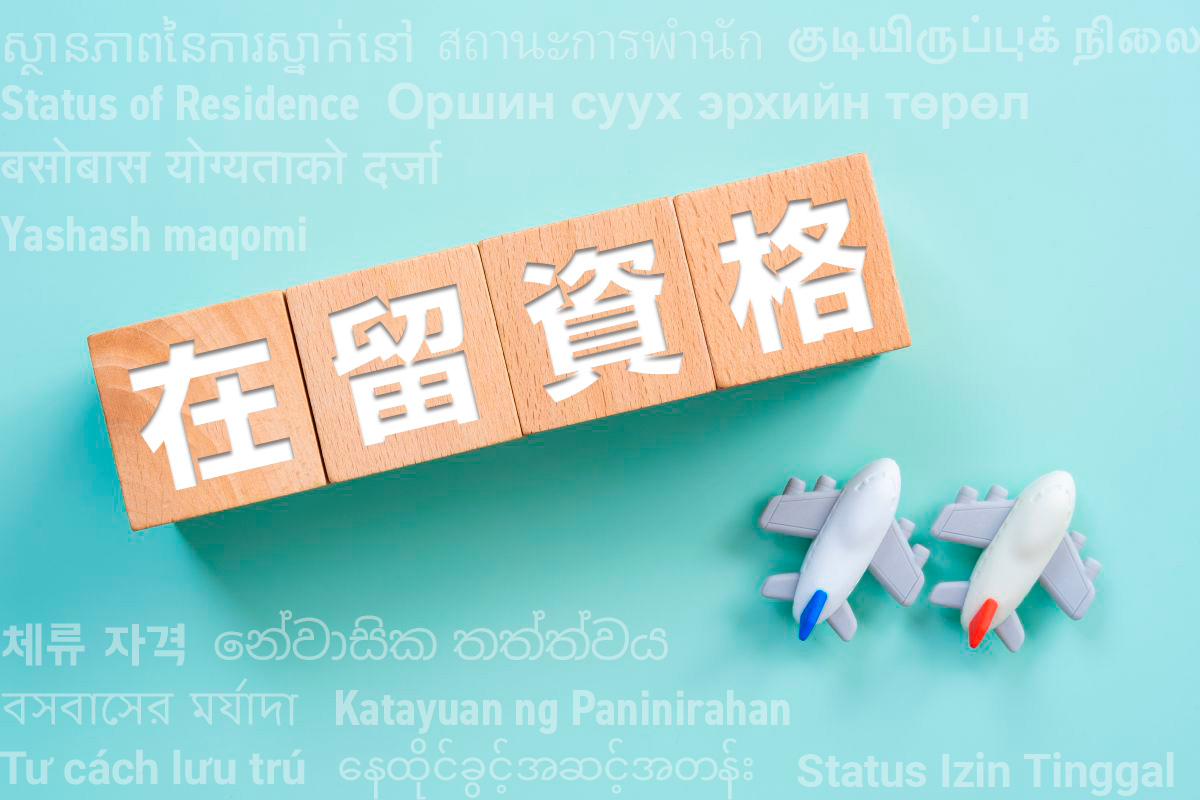
What is the status of residence that allows you to work? Explaining the types, how to obtain it, and more!







